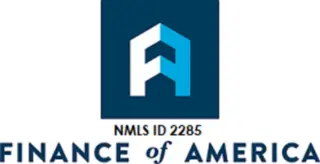What Is a Reverse Mortgage, and How Does It Work?
A reverse mortgage is a home loan that allows older homeowners to borrow against their home's equity. Unlike a traditional loan, a reverse mortgage doesn't require the homeowner to make monthly mortgage payments. Instead, the borrower receives money from the lender — either monthly, via a line of credit or in a single lump sum at closing.
These loans are typically reserved for borrowers aged 62 and up (though some lenders allow ages as low as 55). Homeowners often use them to reduce their monthly housing costs or increase their retirement income.
Keep reading to learn more about reverse mortgages, how they work and whether they might suit you in retirement.
Table of contents
- What is a reverse mortgage?
- Types of reverse mortgages
- How does a reverse mortgage work?
- Pros and cons of reverse mortgages
- How to apply for a reverse mortgage
- What are the fees associated with reverse mortgages?
- Reverse mortgage FAQs
What is a reverse mortgage?
A reverse mortgage is a loan that allows seniors to borrow a portion of their home's equity. They can access these funds as one upfront sum, via regular monthly payments or on an as-needed basis.
The amount of money borrowed via a reverse mortgage is only due when the borrower:
- Dies (heirs are responsible for paying the loan if they wish to keep the property)
- No longer lives in the home as their principal residence (generally meaning where they live for the majority of the year)
- Is away from the home for more than 12 consecutive months in a healthcare facility (unless a co-borrower or Eligible Non-Borrowing Spouse remains in the home)
- Sells the property
- Stops paying taxes and homeowners insurance
- Can no longer adequately maintain the property
Many older homeowners use reverse mortgages to supplement their income in retirement. Reverse mortgages can also help reduce housing expenses (because there are no monthly payments), increase cash flow or pay for home repairs or improvements.
Types of reverse mortgages
There are four different types of reverse mortgages: Home Equity Conversion Mortgages (HECMs), HECMs for purchase, proprietary reverse mortgages and single-purpose reverse mortgages.
Like regular mortgages, these loans can feature fixed or adjustable rates. Fixed-rate mortgages give you a set interest rate for the entire loan term, while your interest rate can fluctuate over time with an adjustable-rate reverse mortgage.
Some lenders offer multiple types of loans, each serving a unique purpose. Understanding the differences among them will help you choose the right financial product to meet your needs.
Home Equity Conversion Mortgage (HECM)
The most common type of reverse mortgage is a Home Equity Conversion Mortgage (HECM), which is federally backed and regulated by the Federal Housing Administration (FHA) and the U.S. Department of Housing and Urban Development (HUD). It's only available through a HUD-approved lender.
Every HECM borrower must be 62 or older and participate in a HUD-approved HECM counseling session before taking out a reverse mortgage. During this session, you'll learn about the HECM program's requirements, repayment options and tax implications. Your counselor will also discuss your individual needs and finances.
HECMs come with FHA insurance and are non-recourse loans, meaning you'll never owe more than your house sells for, even if your outstanding loan balance is larger. However, you must pay a mortgage insurance premium (MIP) with a HECM. This service costs 2% of your loan upfront and 0.5% of your outstanding balance annually.
HECMs offer several options for receiving your funds, depending on your financial needs:
- A single lump-sum payment: You receive one large amount upfront after closing. This option is only available on fixed-rate reverse mortgages.
- Monthly payments: You receive a monthly payment for a specific number of months (called term payments) or as long as the house is your primary residence (called tenure payments).
- A line of credit: You can withdraw funds as you need them. However, the unused principal balance grows over time under this option, based on your interest rate.
- A combination of the above: You can also integrate monthly term or tenure payments with a line of credit. You can't combine the lump sum with any other option.
HECMs limit how much you can access in the first 12 months (often called the “initial disbursement limit”), which is generally the greater of 60% of your principal limit or your mandatory obligations (like paying off an existing mortgage and certain fees) plus 10% of your principal limit.
With a HECM, the maximum amount you can borrow is $1,249,125 for 2026, though the amount you'll qualify for depends on the appraised value of your home, your existing mortgage balance and other financial details. Your lender will require an appraisal of your property to determine its value before moving forward.
HECM for Purchase
HECMs for Purchase allow the borrower to buy a new home without making monthly mortgage payments.
The qualification and application process is the same as a traditional reverse mortgage. You must be 62 or older, pay property taxes, homeowners' insurance, and any other property-related costs like homeowner association fees, and keep the home in good condition.
Depending on the lender you choose, you will need to make a significant down payment, often around the mid-40% to low-60% range (it varies by age and other loan specifics), and you would use cash on hand or the proceeds from the sale of your current home for the down payment and the reverse mortgage funds to pay the balance. Any leftover cash is yours to spend as you wish.
Proprietary reverse mortgage
Proprietary reverse mortgages are available exclusively through private reverse mortgage lenders. Private reverse mortgage lenders set their own terms, which may differ from HUD loan terms. Some call these loans jumbo reverse mortgages because they can exceed HUD limits for HECM loans, with some lenders offering up to $4 million.
These loans also don't have to adhere to HECM's age rules. As a result, many lenders allow borrowers as young as 55. The money can be used for any purpose, including a new home purchase.
Since the federal government doesn't insure proprietary reverse mortgages, HUD-approved HECM counseling isn’t required the way it is for HECMs — but some lenders or states may still require (or strongly encourage) counseling as a consumer safeguard. However, you may pay a higher interest rate because lenders are taking on more risk than with government-backed loans.
Single-purpose reverse mortgage
Single-purpose reverse mortgages are loans designed for a specific, lender-approved purpose, such as paying property taxes or improving your home.
State and local government agencies and non-profit organizations offer these loans, and they typically have lower fees and interest rates than other reverse mortgage products. Eligibility requirements are also less rigid, making them easier to qualify for than a HECM or jumbo reverse mortgage.
How does a reverse mortgage work?
An easy way to think of a reverse mortgage is as an advance on the sale of your home. The lender sends you the money, either in monthly payments, periodic withdrawals or as a lump sum. When you die or sell your house, you or your heirs will repay the loan, typically from the sale proceeds.
During your reverse mortgage term, you won't need to make payments to your lender — although you can if you prefer. However, you must stay current on property taxes, insurance and homeowners association dues to avoid liens. You must also maintain the property — if your roof needs replacement, you are responsible for the cost. If you fail to meet these obligations, your lender may declare your loan due and even foreclose on your home.
Also, for FHA-insured HECMs, lenders perform a required financial assessment, and in some cases the loan may include a Life Expectancy Set-Aside (LESA) to help ensure property charges (like taxes and insurance) get paid.
Pros and cons of reverse mortgages
As with any loan, reverse mortgages have benefits and drawbacks. Understanding the pros and cons of reverse mortgages can help you make the right decision for your future finances.
You'll likely hear a lot about the benefits of a reverse mortgage, and much of it is accurate. Reverse mortgages can be advantageous to many individuals because they:
- Provide access to additional funds for retirement
- Allow you to stay in your home rather than having to sell for liquidity
- Can help you pay off your existing loans
- Can reduce your tax liabilities because the money doesn't count as income
However, most lenders won't be forthright with you about the drawbacks of these loans. Some cons associated with a reverse mortgage include:
- The possibility of losing the house to foreclosure if you can't afford the property tax and other fees
- Leaving less inheritance for your heirs
- The fees you'll have to pay for closing
- A potential reduction to your retirement benefits, like Medicaid or Supplemental Security Income (SSI). You could lose your benefits if you receive a lump sum reverse mortgage payment that pushes you over the federal asset limit and don't spend the entire balance in the month you receive it.
Because reverse mortgages can be heavily marketed to seniors, it’s also worth watching for high-pressure sales tactics and scams — especially offers that push you to use proceeds for investments, repairs, or other products you don’t understand.
Reverse mortgages can be complicated, so it's wise to learn as much as possible about how they work before signing up for anything. The more knowledge you have on the pros and cons, the easier it becomes to make a final decision.
How to apply for a reverse mortgage
In order to apply for a federally insured reverse mortgage, you must meet HUD's minimum eligibility requirements for a HECM loan. These requirements include the following:
- You must be at least 62 years old, own your home and live in it as your primary residence
- You must have a significant amount of equity (typically 50% or more)
- You must have the income or assets to afford taxes and homeowners' insurance premiums on the home
- Your home must be a single-family home, townhome, a one- to four-unit property in which you live, a manufactured home built after 1976 or a HUD-approved condo
- You must keep the house in good condition
- You must attend a financial counseling session with a HUD-approved counseling agency
- You’ll also go through a required financial assessment for a HECM, and depending on the results, part of your available proceeds may be set aside to help cover ongoing property charges (taxes and insurance).
You'll then apply for the loan directly through a HUD-approved lender. A list of lenders in your area that offer HECM loans is available on HUD's website.
Eligibility requirements for proprietary reverse mortgages may differ from the above standards and will depend on the specific lender you choose. Many allow borrowers as young as age 55. They could also have additional income requirements or other conditions you must meet before approval.
What are the fees associated with reverse mortgages?
Reverse mortgages aren't free and could cost you a significant amount of money when you sell your home. Some expenses you might encounter include:
- A loan origination fee
- Mortgage insurance premiums
- A title insurance and report
- HECM counseling
You could also be on the hook for variable expenses like appraisals, recording fees, flood monitoring and any repairs the FHA requires before approving your property. You'll be responsible for interest on the amount you borrow as well, and there could be refinancing costs if you go down that road in the future.
Most of these fees depend on the lender you choose, so, as with a mortgage pre-approval, you can shop around and find the best deal. However, there's no way to avoid these expenses entirely when obtaining a reverse mortgage.
Reverse mortgage FAQs
What is the downside of a reverse mortgage?
How much money can you get from a reverse mortgage?
Who benefits from a reverse mortgage?
Who owns the house on a reverse mortgage?
Summary of Money’s guide to reverse mortgages
- A reverse mortgage can be a valuable tool to support retirement goals.
- Homeowners can access reverse mortgages through FHA-approved and private mortgage lenders.
- HECM loans are available at age 62, but some private lenders offer reverse mortgages at 55.
- Lenders disburse these loans as a lump sum payment, line of credit, monthly annuity or combination annuity and credit line.
- Homeowners should be fully aware of their responsibilities as borrowers.
- Compare lenders to be sure you get the best deal.
- A financial assessment is essential before applying to see if you can afford living expenses, health care costs, insurance and taxes after taking this loan.
- And for FHA-insured HECMs, remember: if the loan balance ends up higher than the home’s value, heirs can generally satisfy the debt by paying the lesser of the full balance or 95% of the home’s current appraised value (the “95% rule”).





